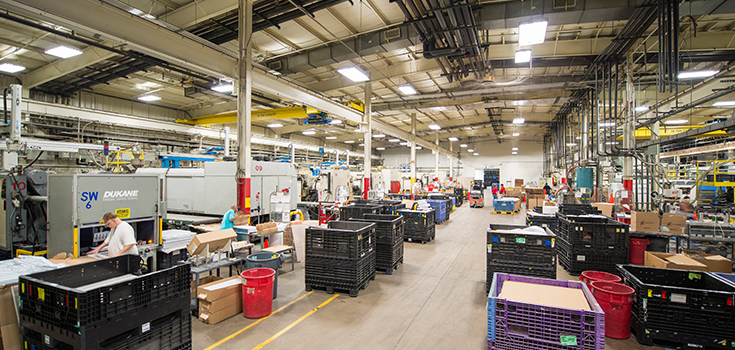Custom-molded plastics are widely used in a variety of industries such as automotive, aerospace, healthcare, consumer goods, and more. These plastics are created using various techniques such as injection molding, blow molding, and rotational molding.
In this guide, we will explore the different types of custom-molded plastics, the manufacturing process, and some of the applications of these plastics.
1. Types of custom-molded plastics
There are several types of custom-molded plastics, each with its unique properties and characteristics.
Some of the most common types include:
- Polyethylene (PE): A lightweight, flexible plastic that is used for packaging, consumer goods, and toys.
- Polypropylene (PP): A durable plastic that is used for automotive parts, household appliances, and medical devices.
- Polystyrene (PS): A versatile plastic that is used for packaging, insulation, and consumer goods.
- Acrylonitrile Butadiene Styrene (ABS): A strong and rigid plastic that is used for automotive parts, toys, and electronics.
- Polyvinyl Chloride (PVC): A plastic that is used for pipes, cables, and construction materials.
- Thermoplastic Elastomers (TPE): A flexible and durable plastic that is used for automotive parts, medical devices, and consumer goods.
2. The manufacturing process
The manufacturing process for custom-molded plastics varies depending on the type of plastic and the desired shape.
However, most processes involve the following steps:
-
Design: The first step in manufacturing custom-molded plastics is designing the part or product using computer-aided design (CAD) software.
-
Mold creation: A mold is then created based on the design. The mold is usually made of steel or aluminum and is created using CNC machining or 3D printing.
-
Material selection: The plastic material is selected based on its properties and the requirements of the final product.
-
Heating: The plastic material is heated to a specific temperature to make it molten and easy to flow into the mold.
-
Injection: The molten plastic is injected into the mold using a specialized machine. The plastic is then cooled and solidified inside the mold.
-
Ejection: The finished product is ejected from the mold and any excess plastic is trimmed off.
3. Applications of custom-molded plastics
Custom molded plastics are used in a wide range of applications, including:
-
Automotive parts: Custom molded plastics are used to create various parts such as dashboards, door panels, and interior trim.
-
Medical devices: Custom molded plastics are used to create medical devices such as syringes, surgical instruments, and implantable devices.
-
Consumer goods: Custom molded plastics are used to create various consumer goods such as toys, household appliances, and electronics.
-
Packaging: Custom molded plastics are used for packaging various products such as food, cosmetics, and pharmaceuticals.
-
Aerospace: Custom-molded plastics are used in the aerospace industry for various applications such as cockpit instruments, interior components, and exterior parts.
In conclusion
custom-molded plastics are an essential part of modern manufacturing, with a wide range of applications across many industries. By understanding the different types of custom-molded plastics, the manufacturing process, and the applications, you can make informed decisions about using these plastics in your products.
Dowel Moulds is one of the most astounding mould manufacturers in Vapi!

